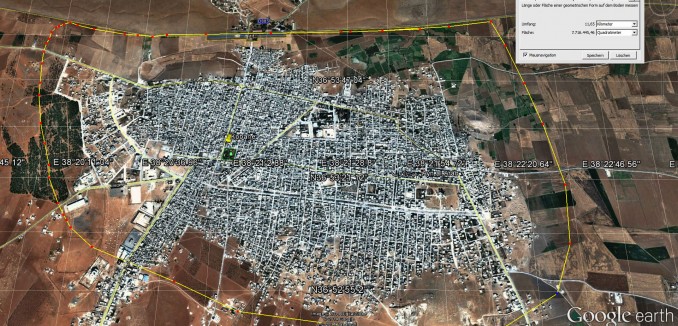The Islamic State of Iraq and Syria (ISIS) has suffered losses this week in both Syria and Iraq. In Syria, Kurdish forces were able to regain complete control of the strategic town of Kobane, which is located near the Turkish border. In Iraq, army forces have liberated the eastern province of Diyala from the militant group.
Citing the Syrian Observatory for Human Rights monitoring group, Al Arabiya reported on January 26 that the Syrian “Kurdish forces are in complete control of Kobane after months of fighting with ISIS.” The channel reported further:
The Syrian Kurdish forces have been backed by near daily U.S.-led airstrikes around the town, known as Ayn al-Arab in Arabic, and supported by Iraqi Kurdish Peshmerga forces.
But the Pentagon declined to declare the battle for Kobane was over or declare that ISIS forces had been entirely pushed out after a four-month battle that became a focal point in the international fight against the group.
In Iraq’s Diyala province, government forces have retaken all populated areas that were controlled by ISIS, a top army officer said on Monday. This is a symbolic victory for Baghdad, which has at times struggled to push ISIS back, Agence France-Presse (AFP) reported.
But according to AFP, this new gain does not mean the problem of violence in Diyala is over. Much will depend on how well Iraqi forces are able to hold retaken territory and efforts to reconstruct areas damaged by the fighting.
The Diyala province borders Iran. According to a reported informal agreement between the Iraqi Shiite militias and the Iranian Quds Force, headed by Commander Qassem Soleimani, Iranian forces are present in a number of Diyala towns and fight with the Iraqi Shiite militias and Kurdish forces against ISIS. This may be explain the weakening of ISIS in Iraq.
Though ISIS is taking some hits, it is looking for gains elsewhere. As the organization manages to maintain its control over a vast area of Syria and Iraq, its presence is perpetuated and its residents get used to its rule. This situation enables ISIS to consider how to expand its foothold in other areas.
As part of this expansion, an ISIS spokesperson announced (Arabic link) the establishment of new branches in Afghanistan and Pakistan. The spokesperson called on the organization’s members to carry out new attacks against Western targets like the attack took place in Paris against the magazine Charlie Hebdo.
Meanwhile in Syria, the forces of President Bashar al-Assad are losing territories (Arabic link) around the southern provinces of Damascus and Daraa. The Free Syrian Army and other opposition forces took control of the Syrian army’s 82nd Brigade’s posts in Sheikh Maskin in Daraa province. The 82nd is the largest air defense brigade of the Syrian regime. The rebels also managed to capture the commander of the brigade’s operations room with the rank of colonel (see video).
This brigade secured the main international highway leading to Damascus and is therefore very important. The rebels succeeded in taking over the old road leading from Damascus to Daraa and to approach the international highway that links Damascus and Amman. They are also now approaching Assad’s 12th and 15th brigades and the 9th division of Assad’s army.
[Photo: Karl-Ludwig Poggemann / Flickr]




